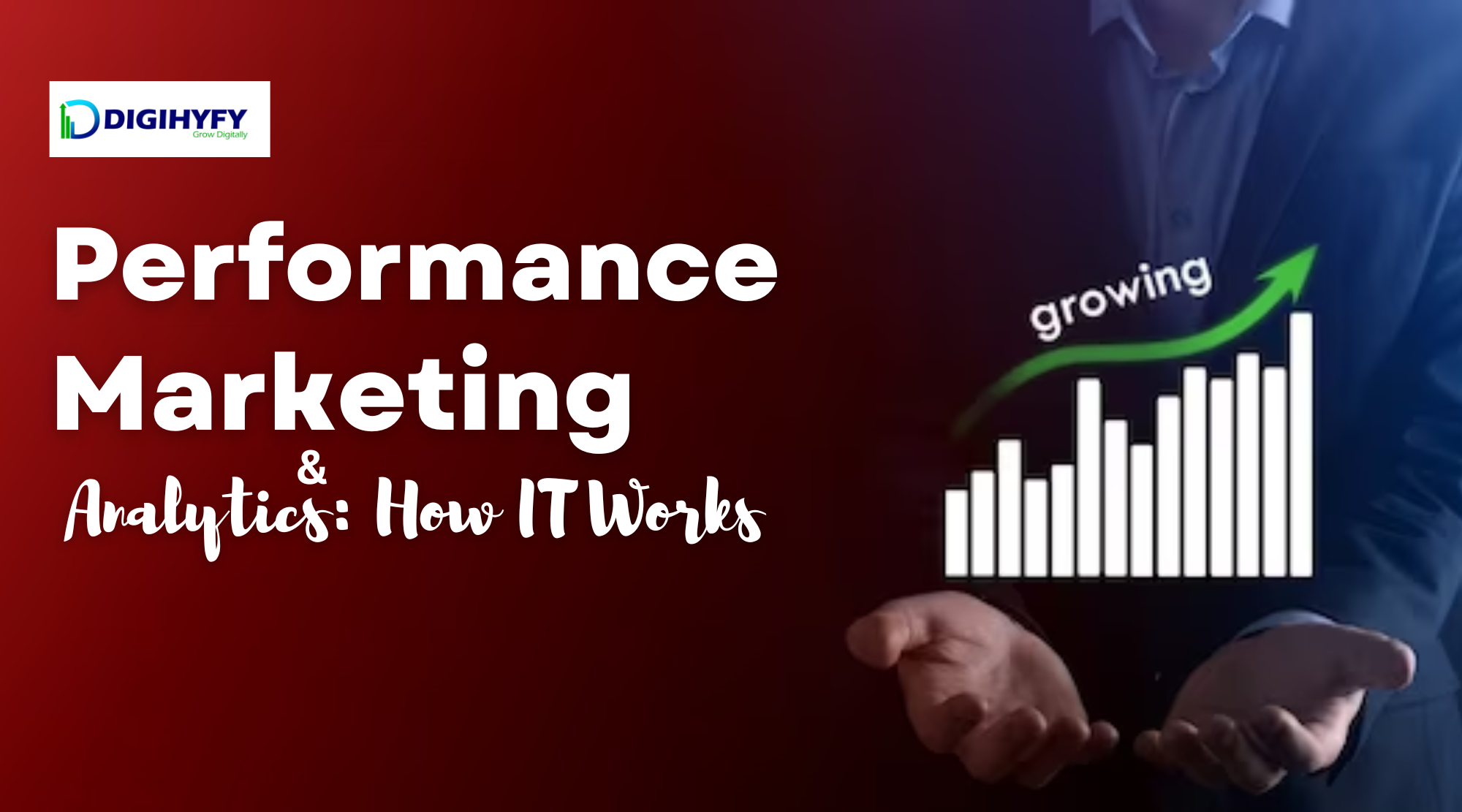
Performance marketing and analytics are two interconnected areas that work together to measure and optimise marketing efforts. Here’s an overview of how they work:
What is Performance Marketing?
Performance marketing is a digital marketing strategy focused on driving specific actions or conversions, such as clicks, leads, sales, or app installs. It aims to deliver measurable results and a positive return on investment (ROI). Here’s how it typically works:
- Goal Setting: The first step in performance marketing is defining specific goals or key performance indicators (KPIs) that align with the business objectives. For example, the goal could be to increase website conversions by 20% or acquire 1,000 new customers within a specific timeframe.
- Targeting and Segmentation: Performance marketing relies on identifying and targeting specific audiences based on demographic, geographic, behavioral, or interest-based segmentation. This ensures that marketing efforts are directed toward the most relevant audience likely to convert.
- Campaign Creation: Performance marketing campaigns are created using various digital channels, such as search engine advertising (e.g., Google Ads), social media advertising (e.g., Facebook Ads), display advertising, affiliate marketing, or email marketing. Each campaign is designed to encourage users to take the desired action.
- Tracking and Attribution: To measure the effectiveness of performance marketing campaigns, tracking mechanisms are employed. These may include tracking pixels, conversion tracking codes, unique URLs, or UTM parameters. They enable marketers to attribute conversions back to specific campaigns and channels.
- Optimization: Continuous optimization is a crucial aspect of performance marketing. Marketers analyze the campaign data, identify what is working and what is not, and make adjustments accordingly. This may involve tweaking ad creatives, refining targeting, adjusting bid strategies, or reallocating budget to the most effective channels.
Analytics: Analytics plays a vital role in performance marketing by providing insights into campaign performance, customer behavior, and overall marketing effectiveness. Here’s how it works:
- Data Collection: Analytics systems collect data from various sources, including website analytics tools (e.g., Google Analytics), ad platforms, customer relationship management (CRM) systems, and other relevant data sources. This data may include website traffic, ad impressions, clicks, conversions, customer demographics, and more.
- Data Analysis: Analytics tools process and analyze the collected data to uncover valuable insights. This involves aggregating and segmenting the data, applying statistical models, and employing data visualization techniques to identify patterns, trends, and correlations.
- Performance Measurement: Analytics enables marketers to measure the performance of marketing campaigns against the defined goals or KPIs. It provides metrics such as click-through rates (CTR), conversion rates, cost per acquisition (CPA), return on ad spend (ROAS), customer lifetime value (CLV), and more. These metrics help assess the effectiveness and ROI of different marketing efforts.
- Reporting and Dashboards: Analytics platforms often offer reporting and dashboard functionalities to present insights in a clear and accessible manner. Marketers can generate regular reports, customize dashboards, and set up automated alerts to monitor performance and communicate the results to stakeholders.
- Insights and Optimization: The insights derived from analytics data guide marketing optimization efforts. Marketers can identify underperforming campaigns, uncover opportunities for improvement, and make data-driven decisions to optimize marketing strategies, targeting, messaging, and budget allocation.
What is the Role of Performance Marketing Agency?
A digital marketing agency often specializes in providing various marketing services to businesses, including performance marketing. Here’s how a digital marketing agency may approach performance marketing:
Strategy Development: The agency collaborates with the client to understand their business goals, target audience, and marketing objectives. Based on this information, they develop a performance marketing strategy tailored to the client’s specific needs.
Campaign Planning: The agency creates a comprehensive plan outlining the key performance marketing campaigns to be executed. This includes selecting the appropriate digital channels (such as search engines, social media platforms, display networks, or email) and defining the campaign objectives and KPIs.
Target Audience Identification: The agency works with the client to identify the target audience segments most likely to convert. They conduct research and analysis to determine the demographics, interests, behaviors, and preferences of the target audience, ensuring that the campaigns reach the right people.
Campaign Execution: The agency sets up and launches performance marketing campaigns across the chosen digital channels. This involves creating compelling ad creatives, selecting relevant keywords or audience targeting parameters, setting bid strategies, and configuring tracking mechanisms for accurate campaign measurement.
Conversion Tracking and Analytics: The agency implements tracking systems, such as pixels, tags, or codes, to measure the performance of the campaigns. They integrate analytics tools to collect data on impressions, clicks, conversions, and other relevant metrics. This data is used to assess campaign effectiveness and optimize performance.
Data Analysis and Optimization: The agency analyzes the campaign data and performance metrics to identify areas of improvement. They use analytics tools to gain insights into campaign performance, audience behavior, conversion paths, and other valuable data points. Based on these insights, they make data-driven optimizations to enhance campaign performance and maximize ROI.
Ongoing Monitoring and Reporting: The agency continually monitors the performance of the performance marketing campaigns. They generate regular reports that highlight key metrics, trends, and optimizations made. These reports help clients understand the impact of their marketing efforts and make informed decisions.
Iterative Refinement: A digital marketing agency engaged in performance marketing understands the importance of continuous improvement. They conduct A/B testing, refine targeting strategies, experiment with ad creatives, and explore new opportunities to optimize campaign performance and drive better results.
By working with a digital marketing agency that specializes in performance marketing, businesses can leverage the expertise, experience, and resources of the agency to execute effective campaigns and achieve their marketing goals. The agency’s focus on data-driven optimization helps businesses maximize their marketing ROI and drive measurable results.
Overall, performance marketing and analytics work together to create, measure, and optimize marketing campaigns, ensuring that resources are allocated effectively and marketing goals are achieved. By leveraging data and insights, businesses can continually refine their strategies and improve their marketing performance.